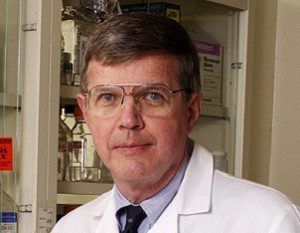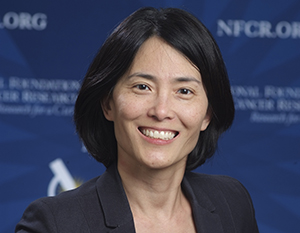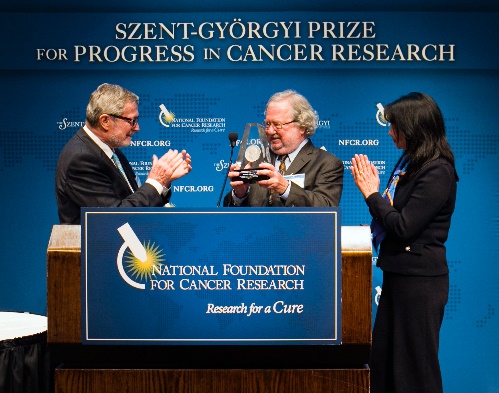Highlights of ASCO 2017
Founded in 1964, the American Society of Clinical Oncology (ASCO®) is the world’s leading professional organization for physicians and oncology professionals caring for people with cancer. Each year, tens of thousands of oncology professionals, cancer researchers and patient advocates gather at The ASCO Annual Meeting to discuss the latest in research in treatment and patient care. Clinical trial results and updates showcased at ASCO represent the significant progress made each year in the fight against cancer. This year, more than 38,000 oncology professionals from around the world will attend the ASCO Annual Meeting from June 2-6, 2017.
Congratulations to Dr. Robert Bast on becoming a Fellow of the American Society of Clinical Oncology!

Dr. Bast is best known for developing the OC125 (CA125) monoclonal antibody in 1981 that led to the production of the CA125 radioimmunoassay – the first useful biomarker for monitoring the course of patients with epithelial ovarian cancer. Since this discovery, Dr. Bast and his team have been evaluating ways CA125 can be used to screen for ovarian cancer. In one instance, results from a large clinical trial involving 200,000 women in the United Kingdom showed that Dr. Bast’s “two-step” approach for the early detection of ovarian cancer – using CA125 detection and sonography – effectively reduces fatalities by 20%.
Dr. Alice Shaw Presents….

In one session on Sunday, June 4, Dr. Shaw will discuss incorporating liquid biopsies into practice. Liquid biopsies are being used to identify targetable genetic mutations as well as to monitor treatment for emerging resistance. This noninvasive diagnostic is particularly helpful for patients who cannot undergo a biopsy or whose tumor sample is exhausted.
On Tuesday, June 6, Dr. Shaw will present her most recent findings in the session on Lung Cancer—Non-Small Cell Metastatic. Dr. Shaw focuses much of her research on drug resistance, a devastating problem for many cancer patients. Although many genetically targeted drugs are effective at first, they almost always stop working as cancers can activate so-called “escape pathways.” Dr. Shaw is leading her research team at Massachusetts General Hospital to develop new strategies to overcome lung cancer treatment resistance – specifically for non-small cell lung cancer with ALK genetic mutation..
To learn more about Dr. Shaw’s NFCR-funded research and how her work is impacting today’s cancer treatments, click here.
Dr. Jim Allison Presents Novel Approaches to Immunotherapy in Solid Tumors

The 2014 recipient of our Szent-Györgyi Prize for Progress in Cancer Research, Dr. Allison uncovered how to activate the immune system to target malignant tumors. His pioneering work ultimately led to ipilimumab (Yervoy®)—the first FDA-approved immunotherapy drug to extend lives for people with advanced melanoma. Today, numerous immune checkpoint inhibitors are available, many of which have the potential to be more effective and less toxic than standard treatments. Because of his discoveries, Dr. Allison was named as one of TIME’s 100 most influential people for 2017.












